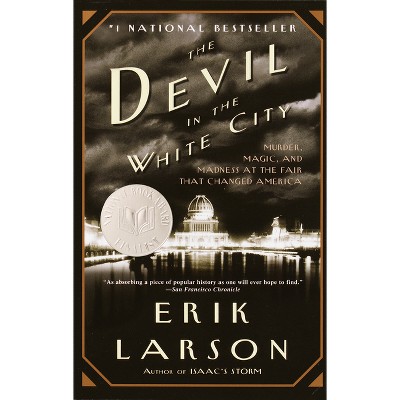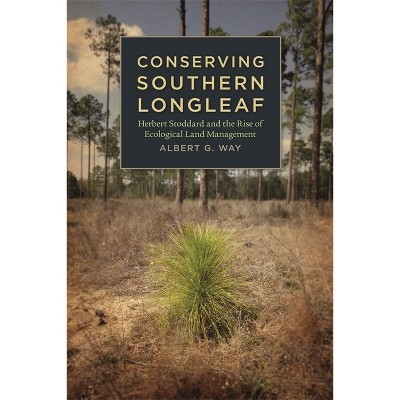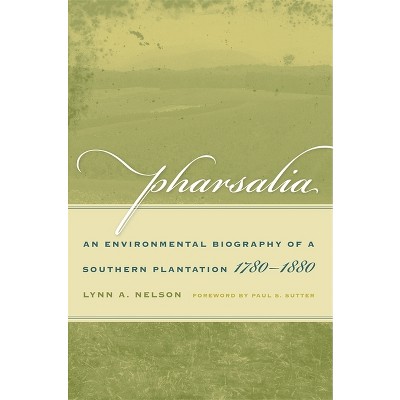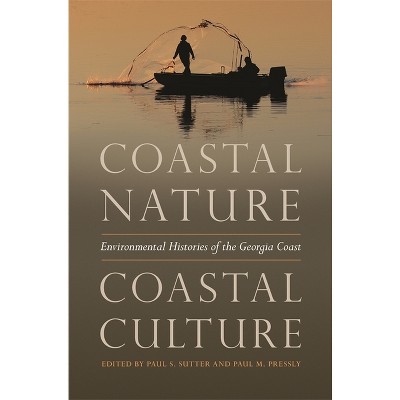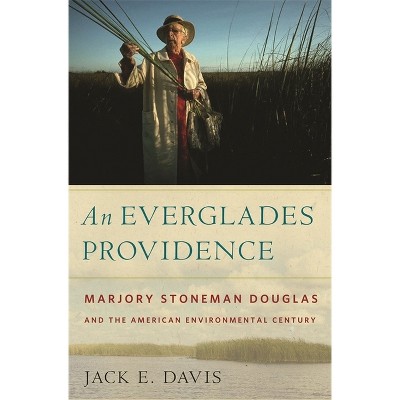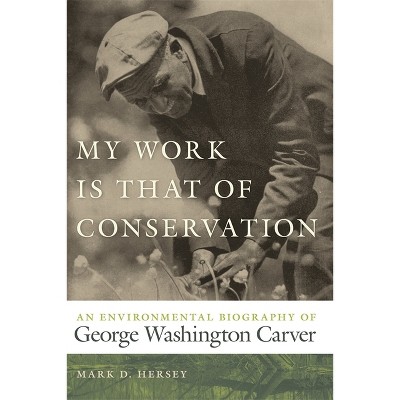Atlantic Environments and the American South - (Environmental History and the American South) by Thomas Blake Earle & D Andrew Johnson (Paperback)

About this item
Highlights
- There is clear overlap in interests and influences for the fields of Atlantic, environmental, and southern history, but scholarship in them has often advanced on parallel tracks.
- About the Author: Thomas Blake Earle (Editor) THOMAS BLAKE EARLE is an assistant professor at Texas A&M University, Galveston, and the author of "For Cod and Country: Cod Fishermen and the Atlantic Dimensions of Sectionalism in Antebellum America" in the Journal of the Early Republic.
- 242 Pages
- History, United States
- Series Name: Environmental History and the American South
Description
About the Book
"This anthology places itself at the intersection of Atlantic, environmental, and southern history, pushing for a new "confluence" of scholarship. There is clear overlap in interests and influences for these fields but they have proceeded, largely, on parallel tracks to-date. In their lucid introduction and throughout the collection, an emerging group of historians explore crucial insights that a self-consciously Atlantic environmental history of the American South can offer. By centering this project on a region, the American South-defined as the southeastern reaches of North America and the Caribbean-the authors interrogate ways in which European colonizers, Native Americans, and Africans interacted in and with the (sub)tropics, a place foreign to Europeans"--Book Synopsis
There is clear overlap in interests and influences for the fields of Atlantic, environmental, and southern history, but scholarship in them has often advanced on parallel tracks. This anthology places itself at the intersection, pushing for a new confluence. Editors Thomas Blake Earle and D. Andrew Johnson provide a lucid introduction to this collection of essays that brings these disciplines together. With this volume, historians explore crucial insights into a self-consciously Atlantic environmental history of the American South, touching on such topics as ideas about slavery, gender, climate, "colonial ecological revolution," manipulation of the landscape, infrastructure, resources, and exploitation.
By centering this project on a region, the American South--defined as the southeastern reaches of North America and the Caribbean-- the authors interrogate how European colonizers, Native Americans, and Africans interacted in and with the (sub)tropics, a place foreign to Europeans. Challenging the concepts of "Atlantic" and "southern" and their intersection with "environments" is a discipline-defining strategy at the leading edge of emerging scholarship. Taken collectively, this book should encourage more readers to reimagine this region, its time periods, climate(s), and ecocultural networks.Review Quotes
Just as the nature of the American Southeast resisted classification according to the rigid taxonomies of old and prompted William Bartram to evoke the sublime and make it known on its own terms, so do the essays in this collection suggest fresh new ways that environmental history can help us grasp the fluidity of the Atlantic world.--Tycho de Boer "Journal of Southern History"
About the Author
Thomas Blake Earle (Editor)THOMAS BLAKE EARLE is an assistant professor at Texas A&M University, Galveston, and the author of "For Cod and Country: Cod Fishermen and the Atlantic Dimensions of Sectionalism in Antebellum America" in the Journal of the Early Republic. D. Andrew Johnson (Editor)
D. ANDREW JOHNSON is the author of "Displacing Captives in Colonial South Carolina: Native American Enslavement and the Rise of the State after the Yamasee War" in the Journal of Early American History.
Shipping details
Return details
Trending History



